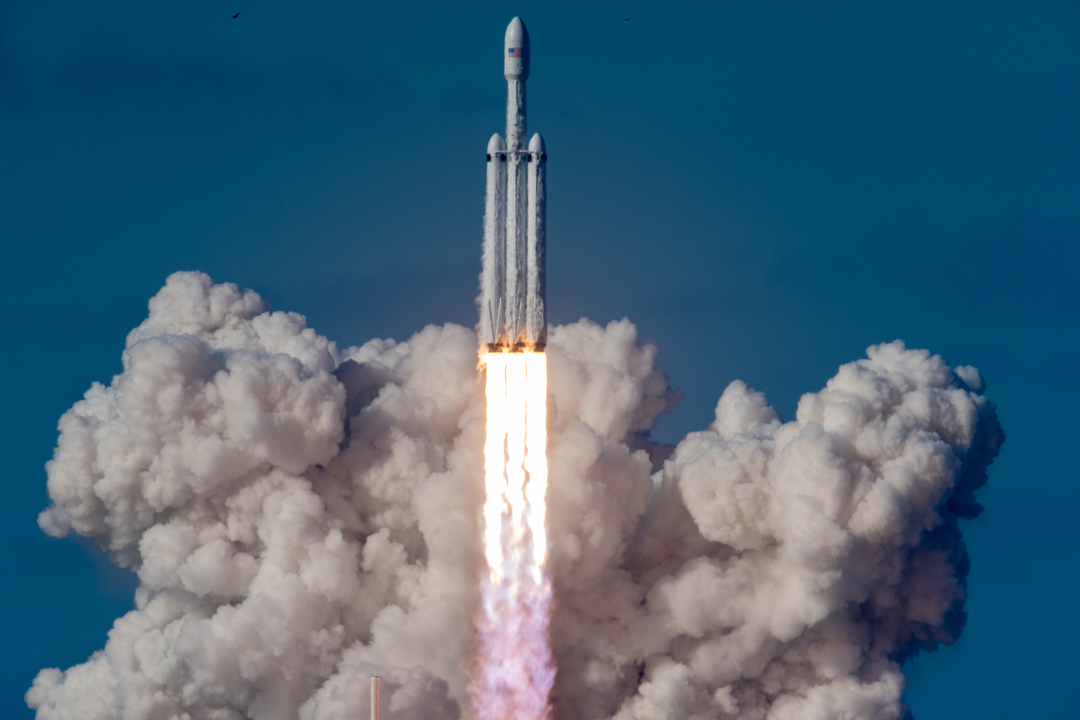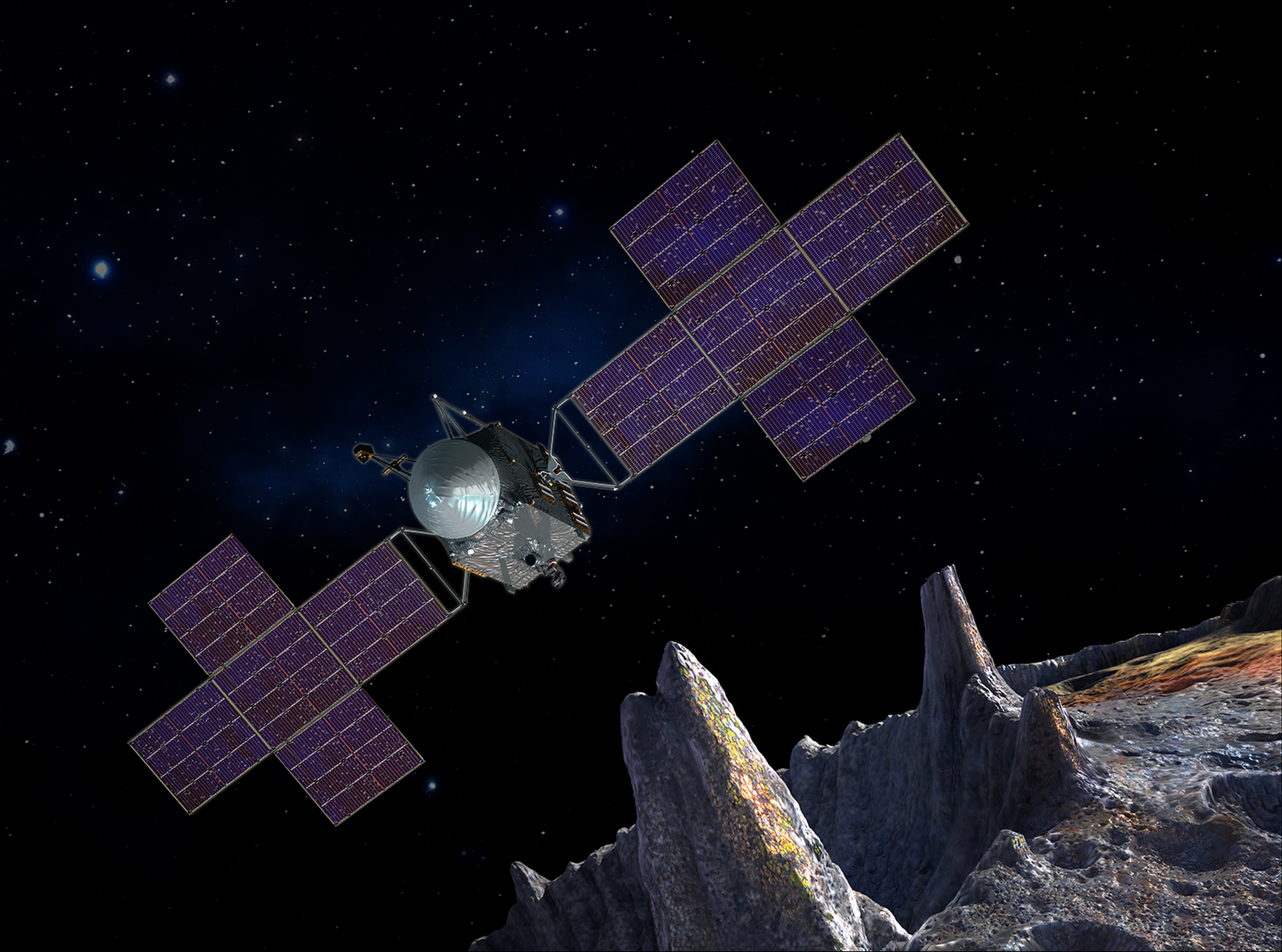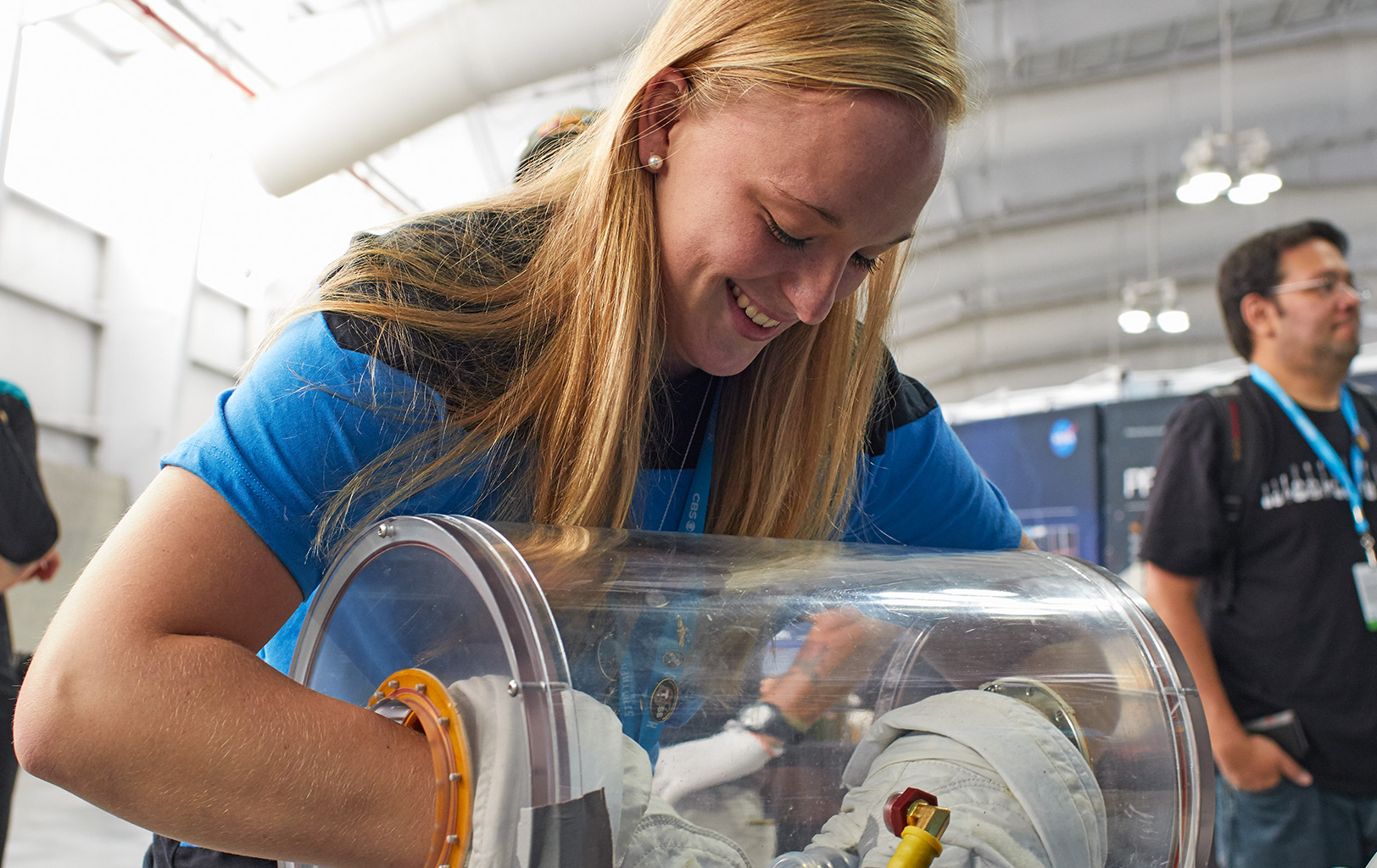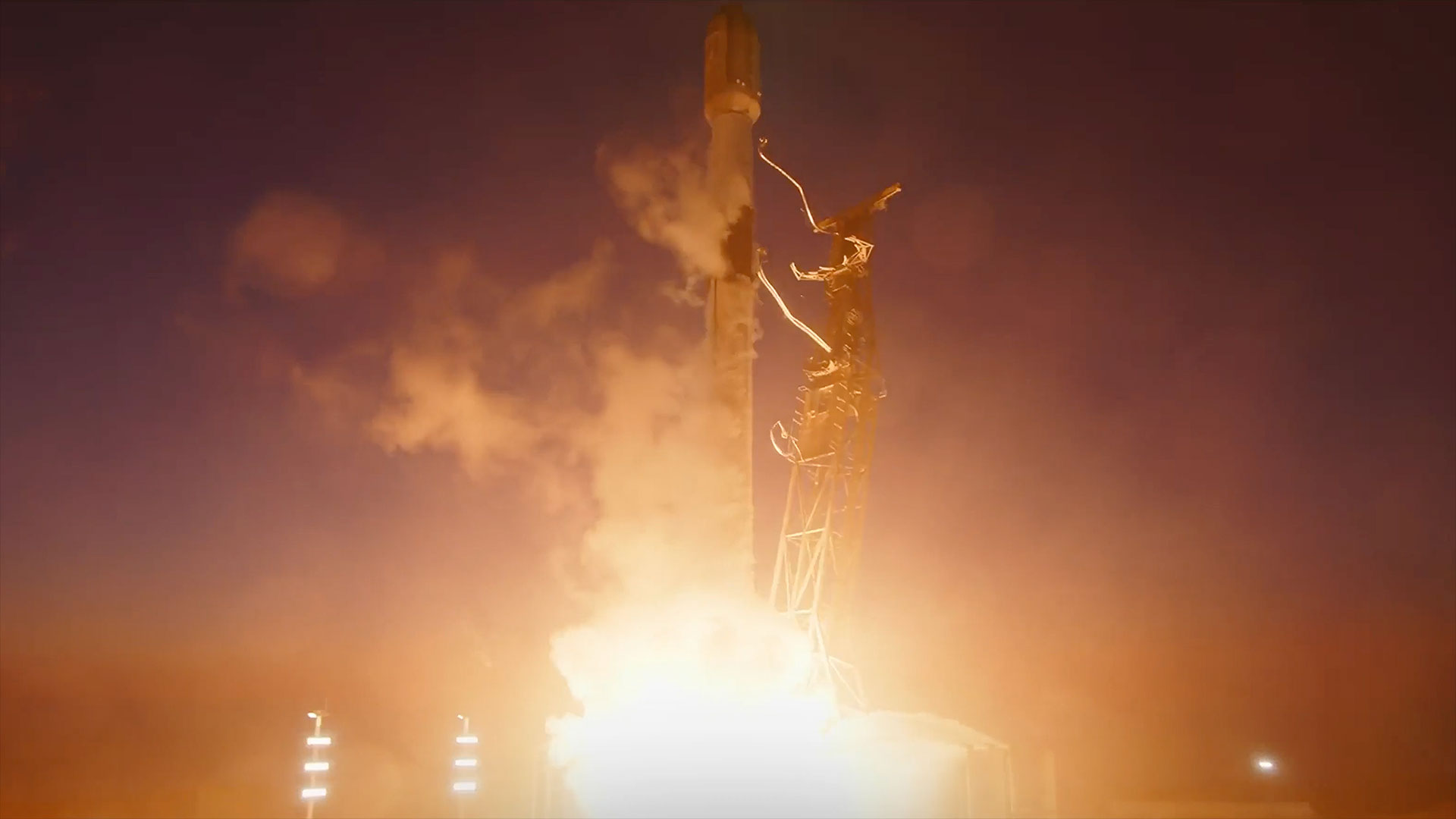NASA picks SpaceX Falcon Heavy to launch Psyche mission to metal asteroid in 2022
NASA has contracted SpaceX to launch the agency's Psyche mission to a unique metal asteroid.
The Psyche mission will use one of SpaceX's Falcon Heavy rockets, and it is scheduled to launch from Launch Complex 39A at Cape Canaveral Air Force Station in Florida in July 2022.
The spacecraft will travel to a unique metal-rich asteroid named Psyche, which orbits the sun between Mars and Jupiter. Astronomers believe that studying this new asteroid will offer new clues about how terrestrial planets like Earth form, according to a statement from NASA.
Related: NASA's mission to metal asteroid Psyche (images)

"The asteroid is considered unique, as it appears to largely be made of the exposed nickel-iron core of an early planet — one of the building blocks of our solar system," NASA officials said in the statement.
Rocky, terrestrial planets like Earth are believed to have a metallic core. However, it is difficult to observe or measure a planet's core directly because it lies far below a planet's mantle and crust.
By studying this unique asteroid up close, scientists hope to better understand the violent history of collisions and accretion that created terrestrial planets, according to the statement.
Get the Space.com Newsletter
Breaking space news, the latest updates on rocket launches, skywatching events and more!

The Psyche orbiter — named for the asteroid that it will study — will have five solar array panels, as well as power and propulsion systems that will allow the spacecraft to navigate to and orbit the asteroid. The scientific experiments that the spacecraft will perform are in the design and fabrication phase. Final assembly and testing of the craft is expected to begin early next year, according to NASA.
With the launch of the Psyche orbiter, the Falcon Heavy rocket will also carry two secondary payloads, including the Escape and Plasma Acceleration and Dynamics Explorers (EscaPADE) and a small satellite called Janus.
EscaPADE, a project led by the University of California, Berkeley, is designed to explore the atmosphere of Mars and the influence of solar wind. The Janus satellite, from the University of Colorado, will study binary asteroids, which are pairs of asteroids that orbit around each other and are believed to be some of the earliest objects in the solar system. EscaPADE and Janus were two of the finalists that NASA selected in 2018 as part of the agency's Small Innovative Missions for Planetary Exploration (SIMPLEx).
After the Psyche mission's scheduled launch in 2022, it is expected to arrive at the asteroid Psyche, between the orbits of Mars and Jupiter, in 2026. The Psyche mission is led by Arizona State University. System engineering and testing for the Psyche mission will be performed at NASA's Jet Propulsion Laboratory.
- 6 asteroids will buzz Earth within a 2-year span and scientists are psyched
- Photos: Asteroids in deep space
- What should we do if a 'planet-killer' asteroid takes aim at Earth?
Follow Samantha Mathewson @Sam_Ashley13. Follow us on Twitter @Spacedotcom and on Facebook.
OFFER: Save at least 56% with our latest magazine deal!
All About Space magazine takes you on an awe-inspiring journey through our solar system and beyond, from the amazing technology and spacecraft that enables humanity to venture into orbit, to the complexities of space science.
Join our Space Forums to keep talking space on the latest missions, night sky and more! And if you have a news tip, correction or comment, let us know at: community@space.com.

Samantha Mathewson joined Space.com as an intern in the summer of 2016. She received a B.A. in Journalism and Environmental Science at the University of New Haven, in Connecticut. Previously, her work has been published in Nature World News. When not writing or reading about science, Samantha enjoys traveling to new places and taking photos! You can follow her on Twitter @Sam_Ashley13.

